Listening to the Voices of Nature
– Speakers –
November 17-18, 2018
Conference Home Speakers Program Sponsors and Partners
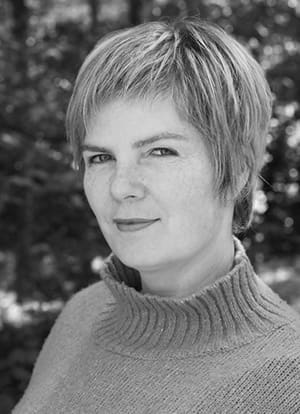
Heather Barnett is an artist, researcher and educator working with natural phenomena, complex systems and biological design, often in collaboration with scientists, artists, participants and organisms. Using diverse media including printmaking, photography, animation, video, installation and participatory experimentation, and working with living materials and imaging technologies, her work explores how we observe, represent and understand the world around us. Current work includes ‘The Physarum Experiments’, an ongoing ‘collaboration’ with an intelligent slime mould; Animal Collectives Leverhulme Artist in Residence with Swansea University; and ‘Nodes and Networks’, a series of collective interdisciplinary biosocial experiments. Watch her TED Talk here.
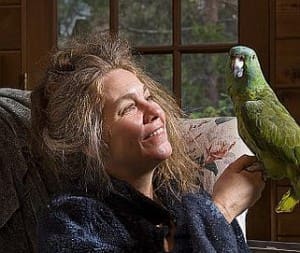
Gay A. Bradshaw is the Executive Director of The Kerulos Center in Jacksonville, Oregon. She holds doctorate degrees in ecology and psychology, and has published, taught, and lectured widely in these fields both in the U.S. and internationally. She is the author of Pulitzer Prize-nominated Elephants on the Edge: What Animals Teach Us about Humanity, published by Yale University Press, an in-depth psychological portrait of elephants in captivity and in the wild. Dr. Bradshaw’s work focuses on trans-species psychology, the theory and methods for the study and care of animal psychological well-being and multi-species cultures. Her research expertise includes the effects of violence on and trauma recovery for elephants, grizzly bears, chimpanzees, and parrots, and other species in captivity. View one of Gay’s video interviews here.
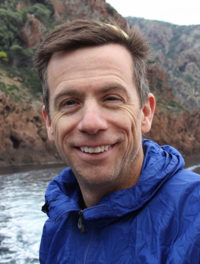
Charles C. Chester loves bats! He teaches global environmental politics at Brandeis University and at the Fletcher School of Tufts University. He serves on the board of Bat Conservation International and is Chair of the Yellowstone to Yukon Conservation Council. He is currently building the website, GEP-guide.net, an online guide to global environmental politics. He co-edited the volume Conservation & Climate Change: Landscape and Seascape Science, Planning and Action (Island Press 2012) and authored Conservation Across Borders: Biodiversity in an Interdependent World (Island Press 2006), which examined the global phenomenon of transboundary collaboration for conservation biodiversity protection, with a focus on the Sonoran Desert (USA-Mexico) and the Northern Rockies of Canada and the United States (Yellowstone to Yukon).
He previously served on the board of Root Capital and consulted for the Union of Concerned Scientists and the Henry P. Kendall Foundation. His current work includes research on the concept of “spatial subsidies” resulting from wildlife migration, on the Appalachian Trail and large landscape conservation, and on the interwoven histories of gorilla conservation, American taxidermy, European royalty, protected area philosophies, and climate change.
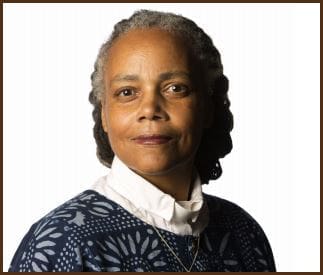
Rev. Dele is a grandmother, author and pastor, who uses her skills as a permaculturist and contemplative to train the next generation of mission leaders in faith, ecology and economic empowerment. She serves on the UN Decade of African Diaspora-Earthcare Coalition; UCC Council for Climate Justice, as regional liaison for Green the Church; council member for the National Congress of Black American Indians. She has convened Soil &Souls to train 300 mission leaders from 30 U.S. communities that need the most assistance in climate resilience. Mission partners are emerging in South Carolina, North Carolina, Virginia, D.C. and Atlanta. She is planting the Heaven to Earth Fellowship in Virginia to provide spiritual nurture to individuals involved in the mission enterprises. Pastor Dele also co- hosts the Spirit of Resilience radio show that shares inspiration and information for our changing social and weather climates. Professionally Dele has been an entrepreneurial manager in California, Oklahoma, Washington DC and Virginia, designing and launching programs with national impact for over 40 years.When she moved to Washington DC in 1993, Dele joined other national leaders working in cultural, spiritual and policy circles for a better tomorrow. She taught Permaculture at College of William & Mary and currently teaches Eco-theology at Virginia Union University. In 2015, the invitation from Bishop Griselda Delgado to return to Cuba and teach climate science to clergy and lay leaders, has birthed a global root that unifies her diverse expressions of ministry. You may read more about her work here and here , and by all means visit her website on your cyber-travels.
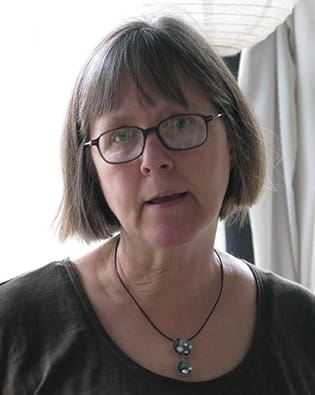
Betsey Dexter Dyer is a professor of biology at Wheaton College in Norton Massachusetts. She earned her PhD at Boston University in the lab of Lynn Margulis, and is the author of A Field Guide to Bacteria (Cornell Press) and a lecturer for the audiobook Unseen Diversity: The World of Bacteria (Modern Scholar).
Her research area is microbial evolution, which she approaches as a generalist and naturalist. Among her favorite microbes are the charismatic, mega-microbes of termite hindguts. Betsey also has had many interdisciplinary collaborations including with a professor of religion on the topic of fermented foods (Oxford Symposium on Food and Cookery) and a professor of computer science on DNA sequence analysis: Perl for Exploring DNA (Oxford Press).
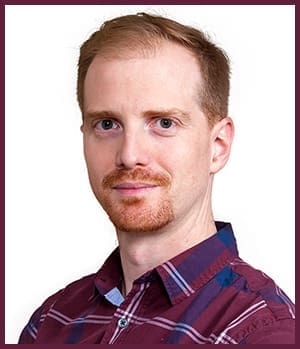
Simon Garnier is an Assistant Professor in the Federated Department of Biological Sciences at the New Jersey Institute of Technology. There he is the head of the Swarm Lab, an interdisciplinary research lab that studies the mechanisms underlying Collective Behaviors and Swarm Intelligence in natural and artificial systems. His lab works toward ‘reverse engineering’ these mechanisms in systems as diverse as slime mold, ant colonies, goat and sheep herds, baboon troops, and human groups.
Simon’s goal is to understand the origin and development of these collective behaviors, to measure their efficiency and adaptability, and to determine the conditions of their success and failure. His work is also to translate these findings into the language of applied sciences, where they might serve to design new solutions to human-related and societal issues. Watch one of Simon’s videos here.
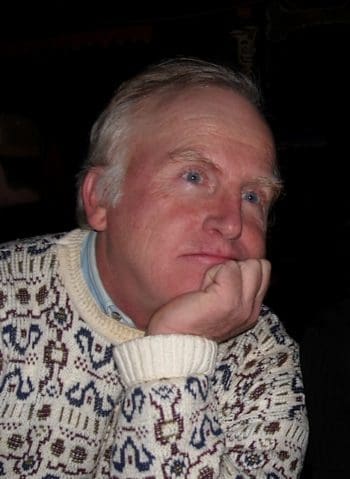
Jim Laurie is a restoration biologist and co-founder of Biodiversity for a Livable Climate. He was manager of the Vermont “Living Machine” which was designed by ecological visionary John Todd. This biodiverse system treated 80,000 gallons of sewage per day. For 20 years he was a biologist and technical trainer in the chemical industry in Houston, Texas, where his work with ecological systems cleaned toxic wastewater.
Jim has studied Holistic Management of grasslands with Allan Savory and the Savory Institute in Texas, Colorado and Montana. In Maryland, he built a lab to study fungi and grow mushrooms learning from the work of Paul Stamets (fungi.com). He also worked with the International Wolf Center in Minnesota learning about predators and the biology of the north woods. Jim loves sharing about these diverse experiences with curious folks of all ages. He really enjoys teaching science and ecology to Homeschool students in the Boston area.
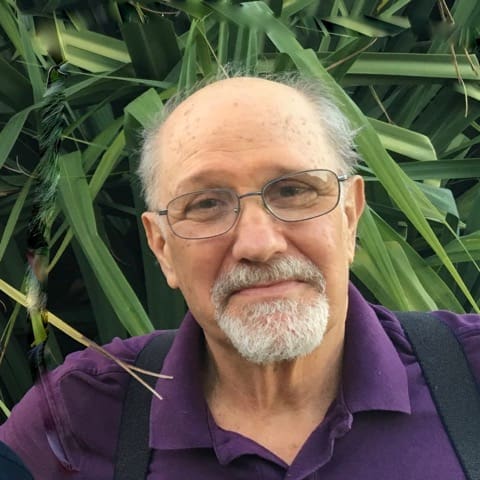
Fred Magdoff is Emeritus Professor of Plant and Soil Science at the University of Vermont. His interests range from soil science to agriculture and food to the environment to the US economy. His research at UVM was on ecologically sound ways to improve soil fertility, especially focusing on the critical role of soil organic matter.
He is the co-author of the third edition of Building Crops For Better Soil: Sustainable Soil Management (2010) and What Every Environmentalist Needs to Know About Capitalism (2011), as well as a number of other books on agriculture and on the US economy. He has also written numerous articles on environmental issues, including on ecological agriculture, production and use of biofuels, ecological civilization, population and global resource depletion, and the environmental and social problems of capitalist agriculture.
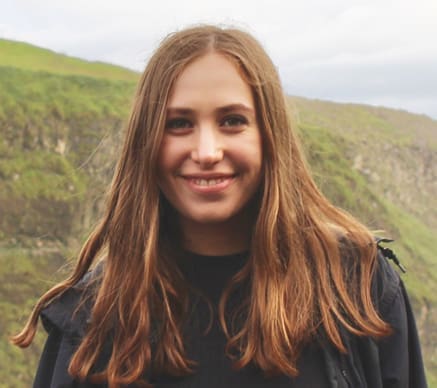
Arielle Martinez Cohen is a 17-year-old singer, songwriter, producer, and activist from Los Angeles, CA. She has been working in the music business since she was nine years old, singing back-up vocals for artists such as Macklemore, Imagine Dragons, Frank Ocean, and Foster The People, and appearing on the Jimmy Kimmel Show and Conan O’Brien Show, among others. At 15, she was selected to attend Grammy Camp for Songwriting. In January 2018, her song, “Two Minutes to Midnight” was used by The Bulletin of the Atomic Scientists in their announcement of the Doomsday Clock, and in March 2018, she sang her song “Why” at the March For Our Lives rally in downtown Los Angeles. This led to interviews on Buzzfeed News and ABC 7 News, which in turn, led to her being selected by Instagram for their #captureconfidence campaign, featuring teen girls who are using their talents to affect positive change. The campaign was launched on Good Morning America with the release of the book Confidence Code for Girls. Arielle also sang at the National Die In Day rally in Los Angeles and at the Zero Hour Youth Climate March in Washington DC.
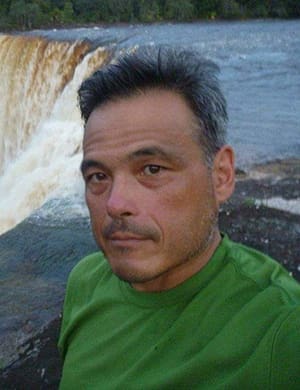
David Morimoto is an ecologist, conservation biologist, and animal behaviorist by training. He has studied the effects of forest fragmentation on Ovenbirds in Massachusetts and performed basic bird inventories in the tropics, most recently on the Rupununi River in Guyana, South America. He is currently involved in urban bird research studying Cambridge birds and is working on the development of citizen science initiatives and the creation of a biodiversity map of Mount Auburn Cemetery in Cambridge and Watertown.
His areas of academic focus and expertise include: ecology, ornithology, conservation biology, and animal behavior. He is very interested in Complexity Science and in unifying principles of complex systems. His teachers have included visionary scientists Lynn Margulis (symbiosis in evolution) and Richard Forman (Landsacpe Ecology). David holds a BS from Stonehill College and a MA and PhD from Boston University.
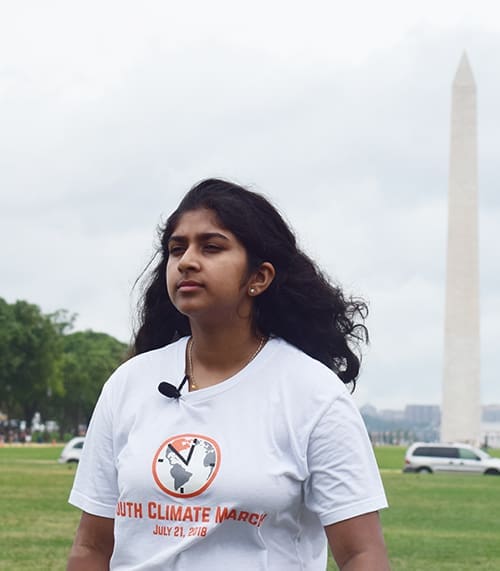
Nadia Nazar is a 16-year-old environmentalist. She has been an activist, a Girl Scout Senior and a vegetarian since age 12. She uses art as a tool for awareness. Nadia helped found the youth-led Climate Organization, Zero Hour. She is the Associate Director and Art Director of Zero Hour. Nadia has taken her environmental efforts to school and her local Indian community.
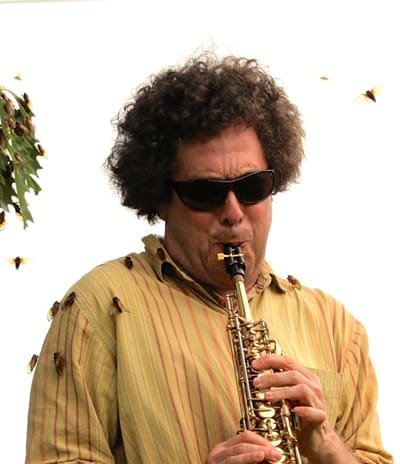
Musician and philosopher David Rothenberg wrote Why Birds Sing, Bug Music, Survival of the Beautiful and many other books,published in at least eleven languages. He has more than twenty CDs out, including One Dark Night I Left My Silent House which came out on ECM, and most recently Berlin Bülbul and Cool Spring. He has performed or recorded with Pauline Oliveros, Peter Gabriel, Ray Phiri, Suzanne Vega, Scanner, Elliot Sharp, Iva Bittová, and the Karnataka College of Percussion. He also worked on the films SONG FROM THE FOREST and the upcoming NIGHTINGALES IN BERLIN is based on his next book.
He has also collaborated with neuroscientists on a series of projects trying to bring musical understanding to scientific methods of understanding animal sounds, and he is working on new ways to visualize animal music as he continues to bring an ever larger assortment of international collaborators together to interact with the sounds of other species. Rothenberg is Distinguished Professor at the New Jersey Institute of Technology.
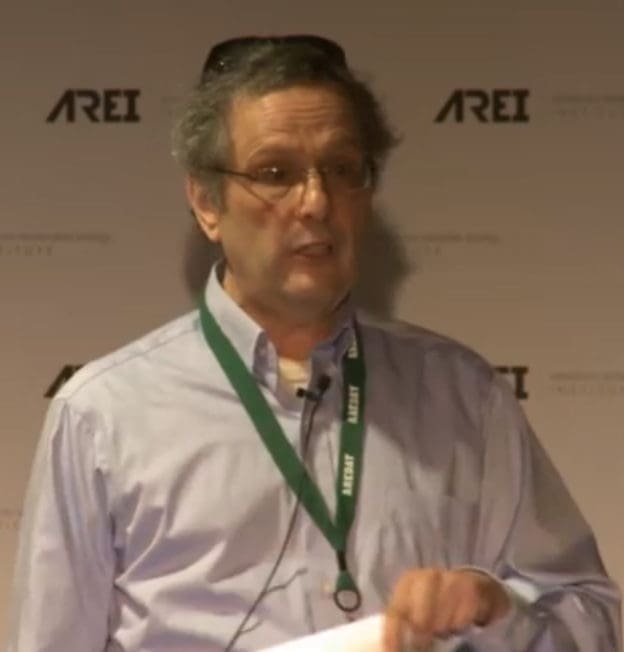
Adam Sacks is the Executive Director of Biodiversity for a Livable Climate. He has had careers in education, holistic medicine, computer technology, politics, and advocacy. A climate activist since 1999, since 2007 he has been studying and writing about the power of biology to reverse global warming and restore the earth. In 2009-10 he published articles in the online magazine, Grist, which described and anticipated some of today’s climate developments. His primary goal is regeneration of biodiversity and a livable planet for his daughter, grandson, and their 7+ billion cousins. Adam’s other interests include art, anthropology and the practice of science in the twenty-first century.
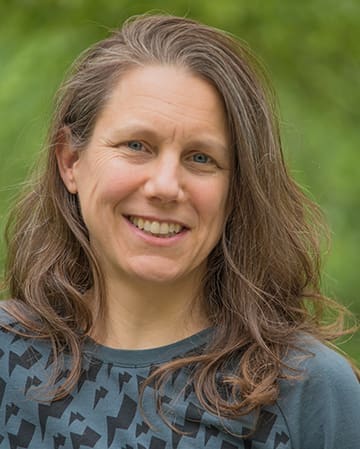
B. Lorraine Smith is a writer and an independent consultant. She imagines a future where business, people and markets serve a thriving society in a healthy biosphere. In other words, she invests her time in the evolution of a regenerative economy.
As a writer, Lorraine shares her ideas through her blog, which introduces different people, places and possibilities connected to the future we want. Her forthcoming book, Where the Trees – ten human stories made possible by trees, journeys through landscapes and moments that challenge us to evolve our roles in nature. And she writes reports and articles about new mindsets and business models.
Since 2004 she has been working with global companies and leaders who are keen to shape the next phase of business. She sits on the Board of Canadian Business for Social Responsibility and is a member of the Release Council of the Future-Fit Business Benchmark, an open source tool that quantifies how businesses are contributing to a sustainable future. Originally from Toronto, Canada, Lorraine is now based in New York City where she lives with her husband, two cats and a lot of houseplants. More about Lorraine’s work at https://www.blorrainesmith.com/.
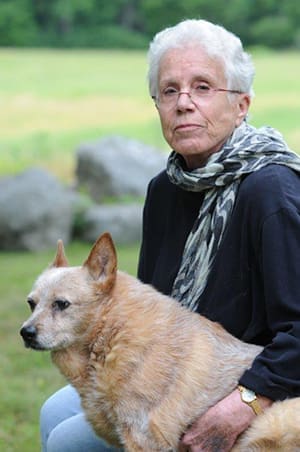
Elizabeth Thomas was born in 1931, attended Smith College and Harvard University, and spent three years in the 1950s among pre-contact San who occupied a large area in what is now Namibia and Botswana, an area that was still “unexplored.” This word is in quotation marks because archaeological studies done later found a San encampment which was occupied continuously for more than 30,000 years and another encampment which was occupied continuously for more than 80,000 years, and the San had done the exploring. There, she visited the San and also the local lions, whose relationship with the San was most interesting, and she wrote two books about the experience, The Harmless People, published in 1959, and The Old Way: A Story of the First People, published in 2006.
She also spent a summer alone on Baffin Island observing wolves. This appears in The Hidden Life of Dogs, published in 1993. She then studied mountain lions and captive circus tigers. Her findings appear in Tribe of Tiger: Cats and their Culture, published in 1995. She later did a study of the white tail deer who live on her land in New Hampshire. This was published as The Hidden Life of Deer in 2009. She has also written two novels, Reindeer Moon (1981) and The Animal Wife (1990), about people who lived in Siberia during the Paleolithic, combining what she learned from the African savannah with what she learned from Baffin Island. She has written other books as well.
She was married to Stephen Thomas (a historian and political activist) until his death in 2015. They have two children, a daughter, Stephanie Thomas (an activist for disabled civil rights), and a son, Saibhung Singh Khalsa (until recently a French mountain guide, now a musician). They have four grandchildren and one great-grandchild.
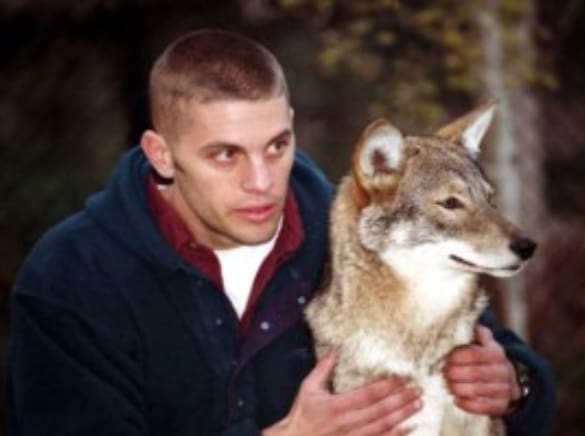
Jon Way has a B.S. (UMass Amherst), M.S. (UConn Storrs), and doctorate (Boston College) related to the study of eastern coyotes/coywolves. He is the author of 2 books: Suburban Howls, an account of his experiences studying eastern coyotes in Massachusetts, and My Yellowstone Experience, which details – in full color – the spectacular wildlife, scenery, and hydrothermal features that can be found in the world’s first national park. Jon founded and runs his organization, Eastern Coyote/Coywolf Research, where he is continuing his goal of long-term ecological and behavioral research on coywolves. He also supplements his research with regular trips to Yellowstone National Park. He is seeking a publisher for a 3rd book project of his: “Coywolf“.
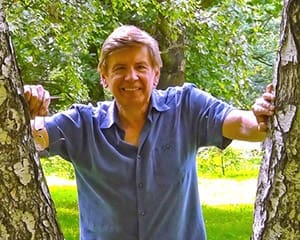
Doug Zook founded and directs the Global Ecology Education Initiative (GEEI). He is biologist, naturalist, science educator, and photographic artist. He has given over 200 invited presentations and conducted scores of workshops, courses, and exhibitions around the world. He has led several trips to the remote Amazon in eastern Ecuador as well as month-long global ecology intensive field courses in New Zealand.
A recent Fulbright Distinguished Scholar recipient, during his 30 years at Boston University he served as Director of the Masters of Arts in science teaching, guiding more than 300 students to careers as science teachers. Doug was a close colleague of the renowned scientist, the late Lynn Margulis, for nearly three decades. Inspired by many of her ideas, he formed a team of public school teachers, Boston University education and biology students, artists and scientists to create the International Microocosmos Science Education program in 1987 that brought the importance of mcirobial ecology to the attention of educators and the public over more than ten years.
He is today also a nature photography artist, focused on images captured as reflections off window panes in various cities His exhibit “Earth Gazes Back’ (http://www.douglaszookphotography.com) has attracted numerous visitors at both overseas and Boston venues. Contact: douglas.zook@umb.edu.
